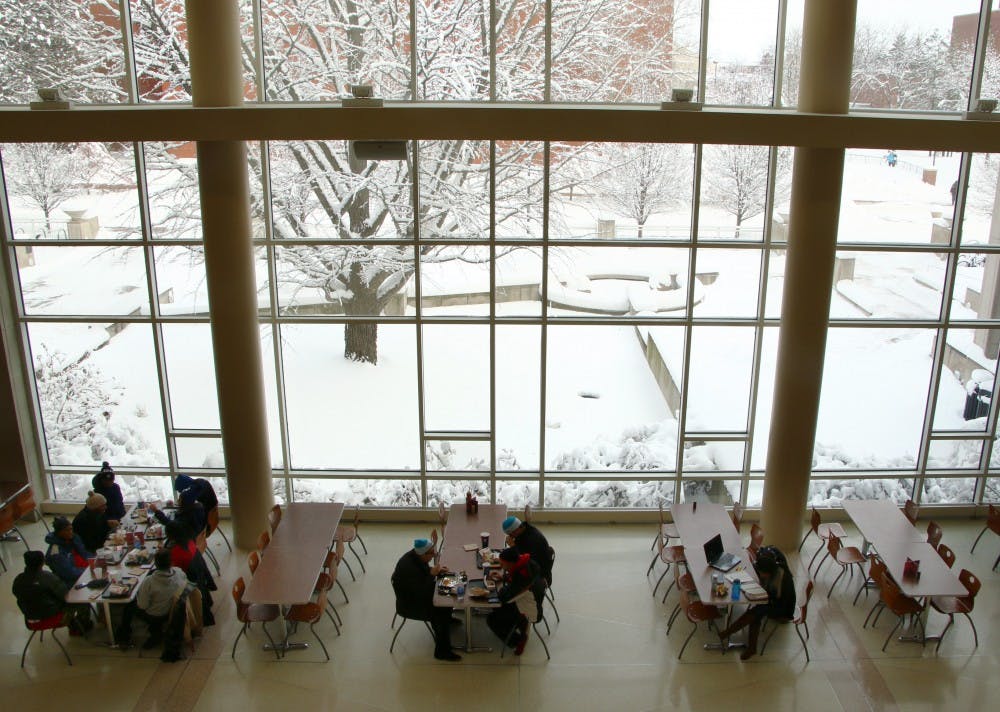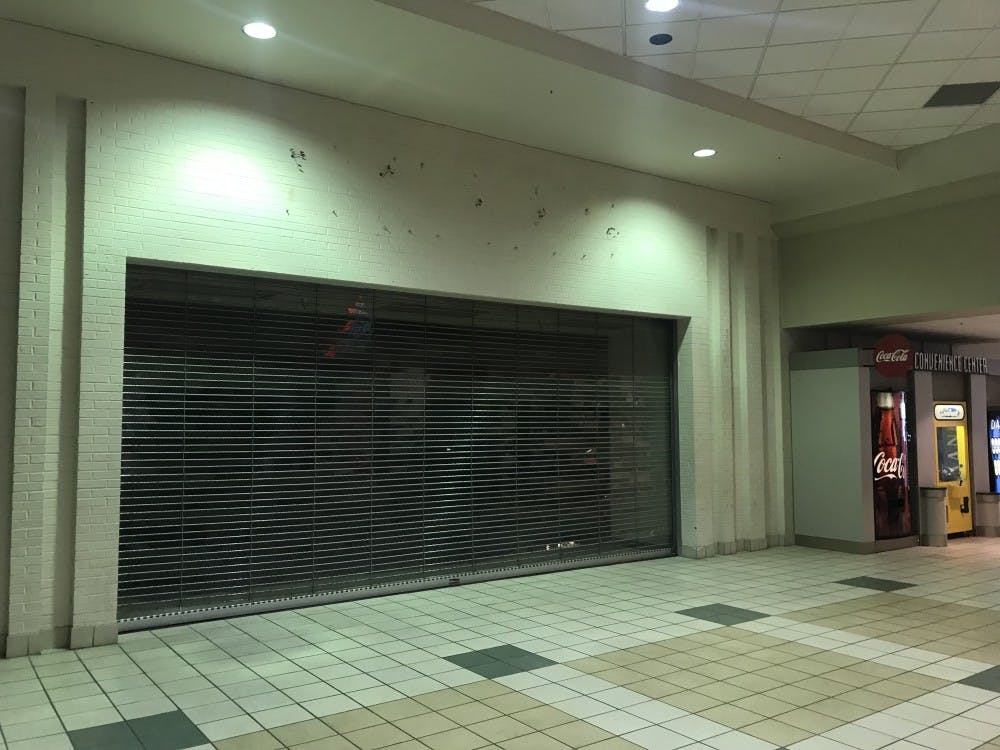• University students often complain about lack of days off for weather
• Ball State officials say it is based on confusion, K-12 schools operate differently than colleges
• Universities stay open due to investment in education
While Ball State students returned to class today, K-12 schools throughout the area remain closed. Tony Proudfoot, a university spokesperson, said people often try to make the comparison between the two systems, giving Ball State its reputation for not canceling classes often.
“Sometimes, people get confused and say, ‘Gosh, Muncie Community Schools is closed, why isn’t Ball State closed?’” he said. “Well, we are a very different situation.”
He said K-12 schools have to consider children waiting for long periods of time at bus stops, whereas college students can drive to campus and have relatively short walks between buildings or can use buses.
Although the university doesn’t have to consider small children, there are still potential dangers associated with winter weather.
On Feb. 2, 2011, classes were delayed. Student Melissa Klemeyer fell and injured her wrist in Scheidler Apartments when heading to class that day. During the same week, public records show that 33 employees fell due to the weather conditions.
In case of dangerous weather, Proudfoot said each student shouldn’t put themselves in harm’s way for class, however, the campus does try to stay open if at all possible.
“The most important thing is we understand students make a significant investment in their education,” he said. “We have a responsibility to continue our educational mission, if at all possible to do so, and we take that responsibility very seriously.”
Unlike primary and secondary schools, Ball State doesn’t make up lost school days, meaning missed class days cut into already tight schedules.
Campuses around the country follow a similar procedure to Ball State and remain open despite adverse weather.
The most recent all-day closure for Ball State was in 2009 and in 2011 for Purdue University. Indiana University’s most recent closure was on Jan. 28, 2009.
Randy Howard, Ball State’s vice president of Business Affairs and treasurer, makes the decision to close campus in coordination with President Jo Ann Gora and other members of the cabinet. Howard maintains contact with the ground crew and uses the forecast to make the final decision.
Each situation is handled on a case-by-case basis. However, there are certain criteria the university looks at when making the decision each time.
“The decision again largely had to do with whether we can provide our services, whether we have power in our buildings and whether people can reasonably get on campus and get about in reasonable fashion,” Proudfoot said.
There is a monetary cost when classes are canceled, but it is difficult to calculate.
“There certainly is a cost, and we do everything we can to keep classes open, to keep the university operating and delivering its educational mission,” Proudfoot said. “But I don’t know if we have ever totaled all of that up. It really depends on a case-by-case basis. There are certainly costs to closure; we’re a very large organization.”
While every faculty and employee is still paid during the closure, essential personnel who must continue to work receive additional “snow pay” and overtime based on law and their contract, he said.
During the two days campus was closed, only essential personnel reported for work. This includes dining and residence hall staff, university police and certain maintenance workers.
While dining remained open Monday, Micro Café, Tom John Food Shop, Bookmark Café and Jamba Juice were closed all day Tuesday.
Jon Lewis, director of dining, said the weather affected food shipments Monday, so they only received a produce delivery and a milk delivery. As a result, the menus had to be altered to ensure there was enough food to feed students.
He said the university received most of the food shipments Tuesday despite continued closure.
The snow day Monday also impacted buses, and they did not run. Proudfoot said this should not have been an inconvenience to students since classes were canceled and all residence halls have dining within walking distance.
Proudfoot said when there is a possible danger to students, they should reach out to faculty for solutions.
“When we have weather like this, what we do is ask for students and faculty to work together to resolve any kind of issue,” he said. “Certainly, the expectation is that nobody would put themselves in harm’s way to get to class.”





